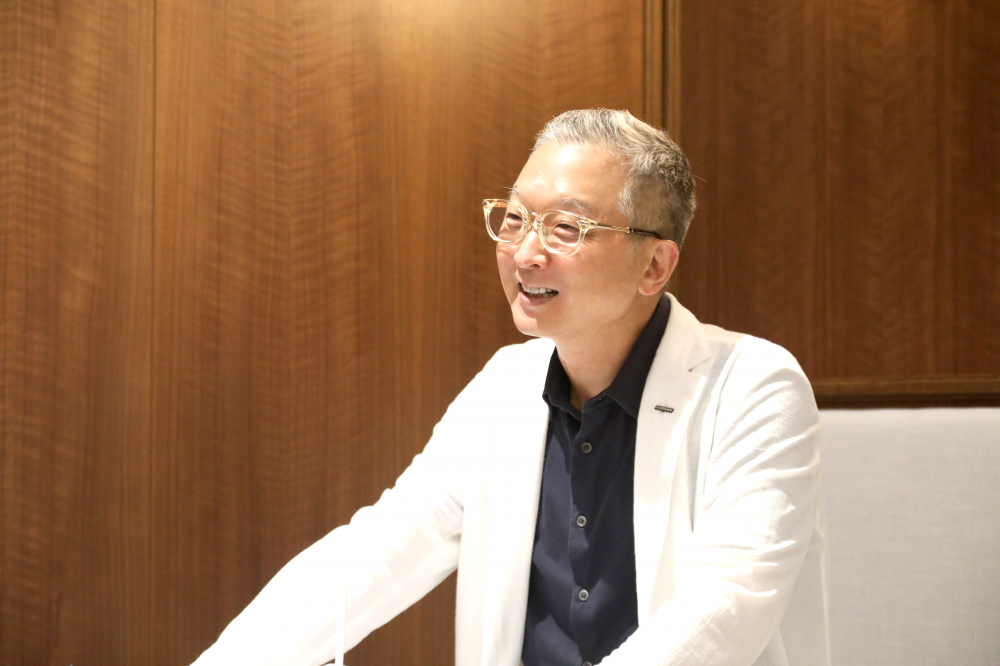News
KUBS News
[Interview] Professor Taewon Park’s CEMS Skill Seminar – Learning “Real Business” Through Field Expe
2025.07.31 Views 57 국제실
[Interview] Professor Taewon Park’s CEMS Skill Seminar – Learning “Real Business” Through Field Experience

Field-based education that allows students to directly observe and engage with corporate transformation and innovation is drawing increasing attention. Korea University Business School’s (KUBS) CEMS Skill Seminar reflects this trend by offering students a unique opportunity to experience real-world business environments firsthand. The seminar was planned and led by Professor Taewon Park—Vice Chairman of Hancom Inc. and Board Member of Chung-Ang University—who used the transformation of Doosan Group as a central case study to emphasize the importance of practical, experience-driven business education that goes beyond theory. KUBS Business Weekly sat down with him to learn more about what “real business” means in today’s educational landscape and what he hopes to cultivate in future global business leaders.
1. What inspired you to design and lead the CEMS Skill Seminar?
Each year, I teach a course on “Transformation” to students in the G-MIM program, focusing on how businesses evolve across generations. In particular, I use the case of Doosan Group, where I have built my career, to illustrate how corporate strategies shift and adapt over time. Doosan, founded in 1896, is one of the oldest companies in South Korea.
The company began as Park Seung-jik Store, a dry goods shop, in its first generation. In the second generation, it expanded horizontally and vertically, focusing on OB Beer and other B2C consumer goods businesses. In the third generation, Doosan underwent major restructuring, selling off its consumer businesses including OB Beer, and pivoting toward B2B industries such as heavy industries and construction equipment. In its current, fourth generation, the company is undergoing another transformation, shifting its focus to next-generation energy (such as SMRs), smart machinery, and advanced technology industries.
This Skill Seminar was designed to help students understand how businesses, like Doosan, adapt their strategies in response to technological and societal change in order to survive and grow. At the same time, the course aims to enhance students’ practical understanding of business by introducing key terminology used in real-world corporate settings.
2. What kind of learning or insights did you hope students would gain through the field visits and company tours?
Whether or not they come from a business background, most students are exposed to management primarily through theory-based courses. However, real-world business is far more complex and dynamic. In my lectures, I emphasize the “Real Business World,” sharing how companies actually operate. This program allowed students to see how theory is applied in practice through two on-site learning experiences. The first was a visit to Doosan’s headquarters in Bundang, where students observed the office environment and employees’ working styles, and toured the corporate history museum, which outlines how the company’s business evolved through each generation. The second was a two-day field trip to Changwon, where students visited five factories—including smart factories—and experienced Doosan’s cutting-edge manufacturing processes firsthand. They also had the opportunity to see high-level technologies such as small modular reactors (SMRs) and gas turbines up close, both of which are manufactured by only a few countries worldwide. Through these visits, students were able to gain a vivid understanding of global industrial competitiveness.
3. Were there any memorable moments or student reactions during the seminar?
What left the deepest impression on me was how satisfied students were with aspects of the program beyond the classroom. During the on-site learning experience, students stayed comfortably in five-star hotel accommodations, each with a private room. We also provided a ten-course dinner paired with wine. After dinner, students naturally gathered and continued to socialize through second and third rounds of informal meetups. This gave them the chance to share stories they didn’t get to exchange during class, and to build a stronger sense of connection and belonging. Rather than just a corporate site visit, the seminar became a meaningful experience of shared learning and interaction. I believe experiences like this leave a lasting impression. Perhaps thanks to programs like this, Korea University ranked first among the 33 CEMS member schools worldwide last year. I believe the Skill Seminar played a meaningful role in achieving that recognition.
4. What are your hopes for the KUBS CEMS program and the Skill Seminar moving forward?
I find it highly encouraging that Korea University’s international standing has been rising in recent years. As an adjunct professor who also works in the field, I believe the role of faculty with real-world industry experience is becoming increasingly important. Education grounded in practical experience helps students cultivate realistic judgment and a global business mindset. I hope that the CEMS Skill Seminar will continue to serve as a dynamic educational platform that bridges theory and practice, Korea and the world—enabling students to grow into globally competitive and practice-ready business leaders.


